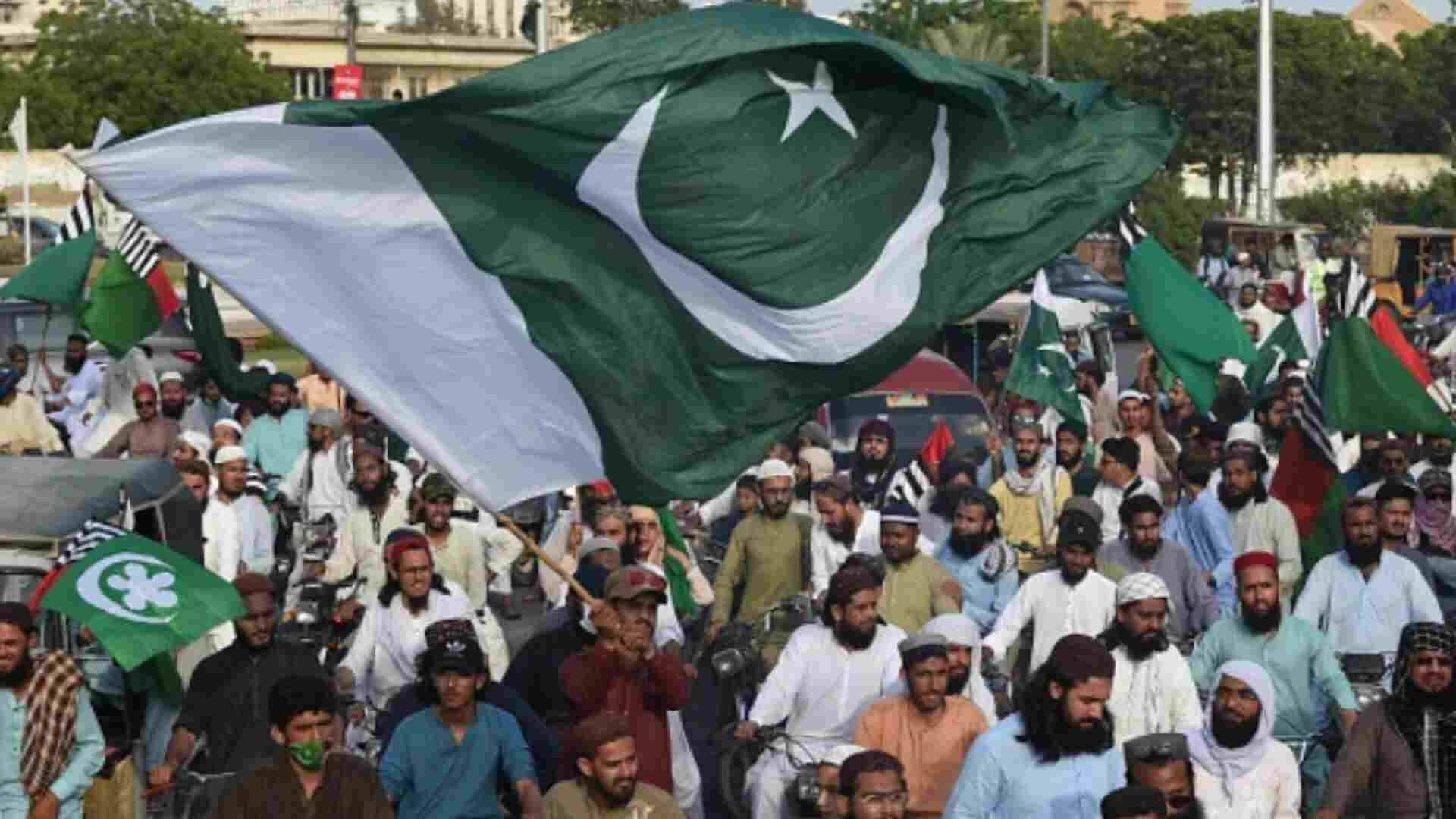77 years in Dependence, not Independence

Stay tuned with 24 News HD Android App

As Pakistan marks its 77th Independence Day, it is essential to reflect on what true independence means and whether our nation has genuinely attained it. Throughout its history, Pakistan has faced numerous challenges that have prevented it from becoming truly independent, not only in the political sense but also in the economic, social, and judicial realms. Despite being a nuclear power and one of the largest Muslim-majority countries in the world, Pakistan's journey has been marred by dependency on foreign powers, internal corruption, and socio-economic inequalities. This article aims to not only highlight these issues but also to encourage every Pakistani, especially the youth, to strive for a brighter, independent future for our nation.
When Pakistan emerged on the world map in 1947, it was seen as a beacon of hope for Muslims in the subcontinent—a nation where they could live freely, practice their religion, and govern themselves. However, the dream of true independence has remained elusive. Over the decades, Pakistan has found itself entangled in the web of international politics, often becoming a pawn in the hands of more powerful nations. The country’s geopolitical importance has attracted the attention of global powers, which have, at times, manipulated Pakistan’s policies to serve their own interests.
This dependency on foreign aid and influence has hindered Pakistan’s ability to develop an independent economic and political system. The economy has often been propped up by loans from international financial institutions, leaving little room for self-reliance. The influence of external powers has also impacted Pakistan's foreign policy decisions, often aligning them with the interests of others rather than prioritizing national goals
Economically, Pakistan has struggled to achieve sustainable growth. The reliance on foreign aid and loans has led to a cycle of debt, where the country remains trapped in financial instability. This has, in turn, contributed to high levels of unemployment, inflation, and poverty. The lack of economic independence has resulted in a weak industrial base, poor infrastructure, and limited social services.
Moreover, the economic challenges have exacerbated social inequalities. Pakistan's society is deeply divided along lines of class, ethnicity, and sectarianism. The elite class enjoys privileges that the majority of the population can only dream of, leading to a sense of disenfranchisement among the masses. The lack of access to quality education and healthcare has further widened the gap between the rich and the poor, creating a cycle of poverty that is difficult to break.
One of the most significant indicators of a truly independent nation is the strength of its legal and judicial systems. Unfortunately, Pakistan has struggled with the consistent application of the rule of law. Corruption, nepotism, and political interference have weakened the judiciary, leading to a lack of trust in the legal system. Justice is often delayed, and for many, it is never served at all.
The erosion of the rule of law has had far-reaching consequences. It has contributed to political instability, with successive governments being overthrown through undemocratic means. The lack of accountability has allowed corruption to flourish, further undermining the nation’s progress. The issue of Jammu and Kashmir, a long-standing dispute with India, is a stark reminder of how external pressures and internal weaknesses have prevented Pakistan from achieving its goals.
Despite these challenges, the 77th Independence Day should not only be a time for reflection but also for action. Pakistan’s youth, which makes up more than 65% of the population, holds the key to the nation’s future. This new generation must recognize the importance of true independence and work towards achieving it.
To change the course of history, every Pakistani must realize their role in nation-building. It is time to break free from the chains of dependency, both internal and external. We must demand transparency and accountability from our leaders, support initiatives that promote economic self-reliance, and work towards creating a society where justice and equality are upheld.
One of the most significant obstacles to Pakistan's true independence has been the repeated imposition of military rule. Since 1947, Pakistan has experienced several military coups that have disrupted the democratic process, undermining the nation's ability to govern itself independently. The military's repeated interference in politics has stunted the growth of democratic institutions, preventing the emergence of strong and effective political leadership.
Military regimes have often ruled with an iron fist, sidelining civilian governments and concentrating power in the hands of a few. This has not only led to political instability but also hindered the development of a robust democratic culture. Moreover, the military's close ties with global powers have made Pakistan susceptible to foreign influence, further compromising its independence.
The lack of consistent, visionary political leadership has allowed external forces to manipulate Pakistan’s policies to suit their own interests. As a result, Pakistan has struggled to assert its sovereignty and chart its course independently. To achieve true independence, Pakistan must break free from the cycle of military rule and establish a strong, civilian-led democracy that reflects the will of its people
The path to true independence is not easy, but it is achievable. Pakistan has the potential to become a prosperous, independent nation if its citizens work together with a shared vision. By investing in education, promoting innovation, and fostering a culture of integrity, Pakistan can overcome its challenges and realize its potential.
On this Independence Day, let us pledge to make Pakistan truly independent—economically, socially, and politically. Let us work towards a future where every Pakistani, regardless of their background, has the opportunity to thrive. The journey may be long, but with determination and unity, we can build a Pakistan that is not only independent in name but in spirit and reality.
